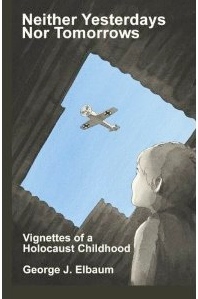by George J Elbaum
Francisco Middle School was established in 1924, and during its more than 90 years of history has served many illustrious students, such as baseball legend Joe DiMaggio and 9/11 hero Betty Ann Ong. Now its very high-diversity student body, numbering over 600 youth in grades 6, 7 and 8, mostly live in San Francisco’s North Beach, Chinatown, and Tenderloin neighborhoods. Since these neighborhoods still include large populations of first- and second-generation immigrants, around 80% of its students speak a language other than English at home, 90% are classified as minority and also as somewhat economically disadvantaged. Francisco’s focus therefore must be on facilitating its students’ enduring success in high school and beyond by providing them with a good command of academic English. Furthermore, many students and their families originally come from nations such as Vietnam, Yemen, Guatemala, El Salvador, and Honduras, where war or violence have been or still are a tragic part of their recent experience and modern history. Effective teaching of such students must be, in my opinion, more challenging, but also more gratifying than teaching “typical” American students, and it therefore calls for teachers with a special dedication or calling to their profession. At the same time, Francisco students who have experienced war or violence in their home country can perhaps relate easier to my childhood.
This was my second visit to Francisco, and my presentation was part of an 8th grade class in English/Ethnic Studies. Its teacher, Marna Blanchard, organized my presentation and described her class as follows: “The Holocaust is taught as part of a unit on Genocide and Oppression Across Time and Continents. The students have all had the opportunity to learn about the Holocaust. Some students are now involved in an in depth research project into the Holocaust, while others are involved in similar research on another genocide or oppression. Students through their research cover the following: background of the country before genocide began; how the genocide began; what was it like during the genocide; was there any resistance; were there any reparations or reconciliation; and how are things now. Students will also be answering the Essential Question: how can we learn from history to be agents of change in our global community? Students have heard the testimonies of Jewish partisans, seen the film The Book Thief and read a number of picture books. Some are now reading Boy in Striped Pajamas or Anne Frank or Children of Willesden Lane if they are focused on the Holocaust. Others are reading My Father the Maker of Trees or The Long Walk to Water or Red Pencil or Poppies in Iraq, and many more.” Cover pages of previous research projects are shown in a display case outside the classroom where I spoke (see photo below).
Supporting Marna Blanchard in organizing this event were also Laura Lin and Tristian Eloise. My participation was arranged by Penny Savryn, Program Coordinator, Jewish Family and Children’s Services Holocaust Center
Students’ Letters
Several weeks after my talk at Francisco Middle School I received a large envelope with four dozen Thank You notes from FMS students that were very gratifying as they displayed the students’ empathy and ability to relate my experience to their own lives. As usual, my wife Mimi and I read all notes, with my wife Mimi reading each one aloud while I listened and absorbed it mentally and emotionally. Considering these notes were from middle school students, we were impressed by the maturity and sensitivity shown in the them, per the excerpts below.
- It must have been really hard to speak about something from which you were hiding for the past 60 years. Now your story about your Holocaust childhood has inspired many and taught many. Thank you.
- Your presentation about your life has helped me understand reality when it comes to war. I now know how it feels to feel absolute tragic.
- Your journey during the Holocaust has inspired me to move on from my family’s troubles.
- I could never imagine how it would have felt to live in a world where you and your loved ones are being hunted down.
- I wonder if you feel any resentment towards the Nazis after all they’ve done to you and your family.
- I was really inspired by you, and one thing that I would like to do is to help the world and invent something to help global warming.
- One thing that caught my attention the most was how clever your mother was. It reminded me of my mom, since she is clever for only a few years of schooling.
- Something that I had taken from your presentation is that I should be more open to other people of different races and try to make their time at FMS more valuable.
- I loved your presentation because I could tell that this was all a vivid memory for you, and you used extremely descriptive words, allowing me to picture your story. Thank you for coming.
- What particularly inspired me was your mom. The wit, intelligence & bravery she had is enough to move even the most unfeeling of people.
- Your mother was a very intelligent and brave woman, she inspired me to do better in life and in more of a positive way. Thank you so much for this once-in-a-lifetime opportunity.
- I want to share your story and motivate people to come together as a community and share their perspectives.
- I learned the importance of having strength in the midst of danger.
- You inspired me to appreciate my life and be thankful for what I have
- starting the talk
- listening
- and listening
- back row: with Stuart and Luca; front row: Le’itah and Johnson
- with teacher Marna Blanchard
- front pages of student project reports
- Thank You from Kimmy
- Thank You from Rich











